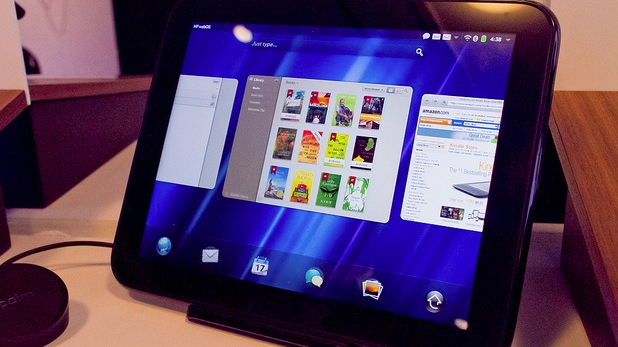webOS' potential: A headache for iOS, Android?

Perhaps bowing under pressure from the smartphone and tablet community, HP is to make its mobile operating system webOS open source.
Those that have been wary about working with the operating system while HP owned it can now jump at the chance to develop and improve the software; with a likely positive reception from the open-source community.
This release potentially means that there will be more competition for Android-based models in the smartphone and tablet market.

If you have become frustrated with Android and are no Apple fan, then the webOS platform may end up becoming a major competitor in the smartphone and tablet market.
The debate over webOS and its hindered release to open source communities has been in contention for some time, with the TouchPad's fate still fresh in the minds of both HP and its competition.
By fully controlling the webOS platform, the fate of the TouchPad cannot be blamed on anyone but HP. Any software issues that resulted in slow processing speed or software that hindered the TouchPad's maximum performance levels was always going to result in hacks, or simply boycott of the product altogether by end-user consumers.
With the opening up of webOS, consumers won't necessarily have to resort to hacking to improve their product's performance. It is no longer one secretive contracted group of developers who are responsible for product flaws. Instead, community developers will now be able to improve the software and ensure that it can grow.
It doesn't make sense from a business perspective to keep omnipotent control over such a platform. By hindering the means of improvement by eager developers, you cause consumers to shy away from adopting the platform entirely -- leaving TouchPads on the shelves to gather dust, where they could have been growing into a heavyweight competitor of Apple and Android models.
This is the best move possible to keep webOS alive. Rather than licensing it off to yet another company, or selling it off for patent profits, HP is now going to allow developers the chance to extend and grow the platform to its full potential.
This is likely to gain a huge amount of support from the open-source community. More than that, it will keep the platform alive, with the HP brand remembered by it.
However, without some serious hardware sponsor backing, we have to consider that it may not in fact become a major competitive force in the market.
Perhaps HP has moved a little too late.
Nevertheless, well done, HP. License and market it correctly. Maybe then, consumers that are fed up with iProducts or their Android models may forgive you for earlier transgressions and adopt the webOS for themselves.
Related: